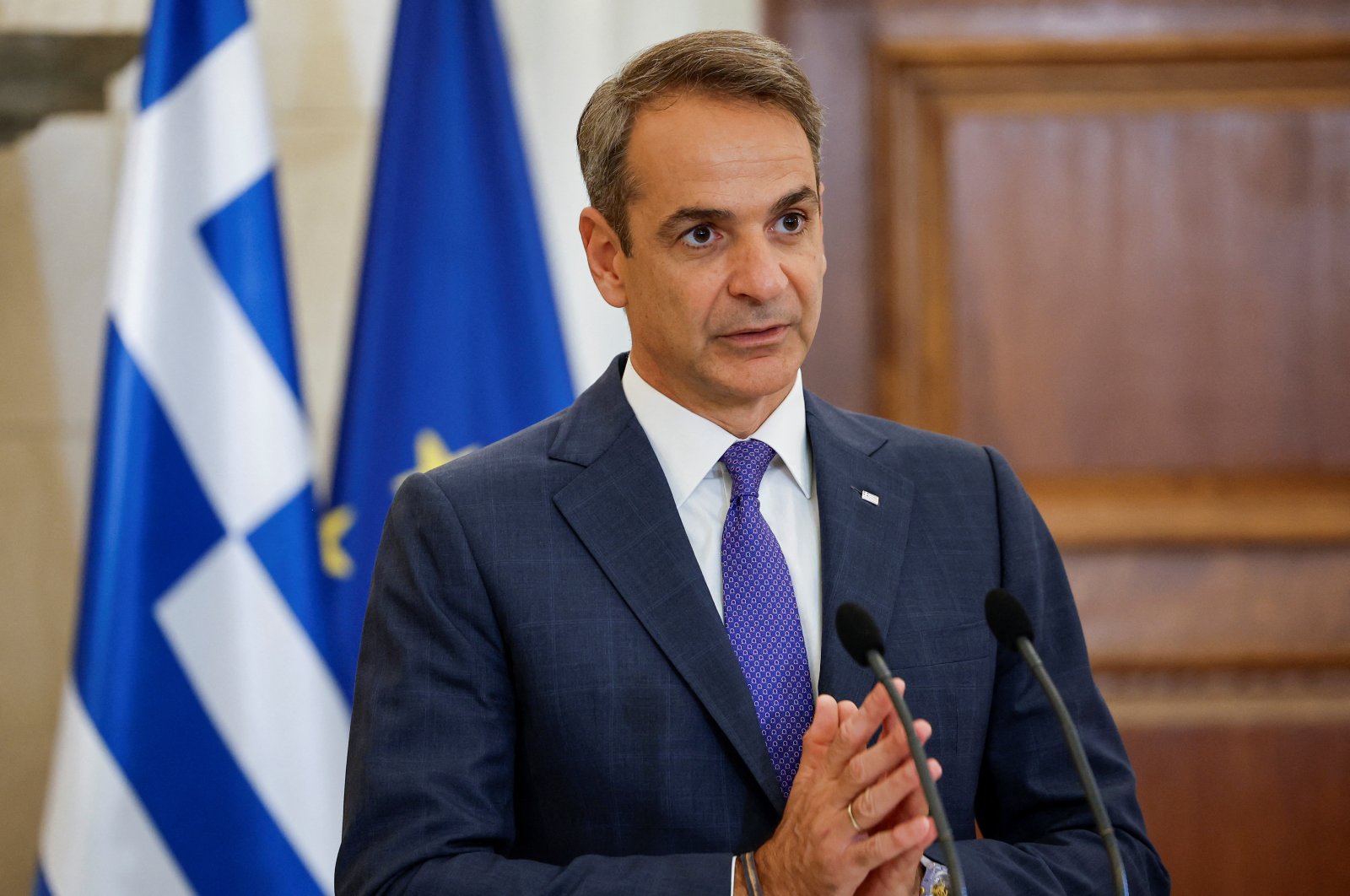
Türkiye and Europe share a common interest in deescalating the war in Gaza, Greek Prime Minister Kyriakos Mitsotakis said Monday as Ankara and the European Union disagree over their respective stances on Israel.
Delivering a speech at a think tank in the German capital of Berlin, Mitsotakis underlined the importance of closer dialogue between European countries and Türkiye to address current issues.
He said he is planning to host President Recep Tayyip Erdoğan in Greece in the coming weeks to discuss bilateral ties and regional issues.
"I completely disagree with the comments of President Erdoğan regarding Hamas. At the same time, this is no reason not to welcome President Erdoğan in Greece," he said at the Konrad Adenauer Foundation.
Erdoğan was criticized by European politicians for his comments after he said the Palestinian group Hamas is not a terrorist organization, but a group of people fighting for their homeland.
"At the end of the day, despite what President Erdoğan said about Hamas, I think we all have an interest in making sure that this conflict does not escalate beyond the horrible situation we already have to address," Mitsotakis said.
"For Türkiye also, it has the same interest. No one wants to see a further escalation of the conflict," he added.
The EU also fears a fresh influx of Palestinian refugees as Israeli strikes have reduced dozens of Gaza neighborhoods to rubble and internally displaced almost 1.6 million people – about two-thirds of Gaza's population – since Oct. 7.
Mitsotakis said that during his upcoming meeting with President Erdoğan, they will also discuss the normalization of bilateral relations, EU-Türkiye ties and cooperation to stem irregular migration.
Speaking at the same panel discussion, Friedrich Merz, the leader of Germany's conservative Christian Democratic Union (CDU), said he shares Mitsotakis' view and supports dialogue with Erdoğan.
"It is obvious that a meeting between our German Chancellor (Olaf Scholz) and the president of Türkiye makes sense," he said, referring to President Erdoğan's planned visit to Berlin on Friday.
"It would make no sense to ask him not to come to Germany. This is the right time to speak," he added.
Erdoğan's planned visit was criticized by various German politicians and media outlets following his sharp criticism of Israel's military campaign in Gaza. Several opposition politicians had called on Scholz to cancel his meeting with Erdoğan.
The disagreement with the West over Israel’s war on Hamas in Gaza, which has left over 11,100 people dead since Oct. 7, has strained Turkish-EU ties that were already troubled over Ankara’s stalled accession bid, migration and the divided Mediterranean island of Cyprus.
Erdoğan has led intense diplomacy in the past month to help facilitate a cease-fire in the blockaded Palestinian city. He has repeatedly slammed Western countries for "watching the massacre from afar,” urging them to put pressure on Israel to cease its attacks and human rights violations.
He has also declared that Türkiye would work together with other regional nations to bring Israel’s "war crimes” to the International Criminal Court (ICC).
Erdoğan’s upcoming visit to Berlin will be "challenging,” according to a German government spokesperson.
The German position toward Israel is rock solid and Scholz will also "make this very clear" in talks with the Turkish president, spokesperson Steffen Hebestreit said in Berlin on Monday.
A sour outcome from the visit, as well as differing views on other issues, could further erode trust and throw off recent efforts to revive Türkiye-EU relations and the accession bid, which Erdoğan has said Türkiye might reconsider altogether.
Ankara and Athens, meanwhile, are taking confidence-building steps to bury the hatchet over historic issues and sustain their tentative rapprochement. Defense delegations from both sides met in Ankara on Monday, for the first time in three years, and agreed on "limiting” maritime exercises, something that sent Aegean tensions soaring on numerous occasions in recent years.
